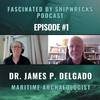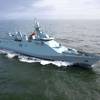To determine the feasibility of new technology designed to dramatically reduce air emissions on seagoing vessels, Holland America Line plans on conducting a seawater scrubber feasibility project aboard one of its cruise ships thanks to the assistance of a $300,000 EPA/West Coast Collaborative grant and $100,000 contribution from Puget Sound Clean Air Agency. The total cost of the installation is more than $1.2 million. This innovative project is intended to demonstrate how advanced seawater scrubbing reduces air emissions on large oceangoing vessels. The results will determine whether this technology could be rolled out to new oceangoing vessels, as well as retrofitting existing vessels.
“Holland America Line has always had a vigorous environmental program and we believe in being proactive on environmental issues,” said Stein Kruse, president and chief executive officer. “A scrubber has never previously been installed on a vessel engine of this size. We are extremely proud to be in the forefront of this technology and feel it is important to collaborate with key partners to find practical solutions.”
"EPA is proud to be joining the Puget Sound Clean Air Agency, Environment Canada and others in supporting Holland America Line's demonstration of this innovative emissions reducing technology," said Michelle Pirzadeh, Acting Deputy Regional Administrator for USEPA's Region 10. "This effort joining Holland America Line with other members of our West Coast Collaborative shows once again the power of public/private partnerships in supporting a healthy environment and a vibrant economy."
The seawater scrubber feasibility project is a collaborative effort. Partners in the project include Puget Sound Clean Air Agency, Environment Canada, Port of Seattle, Port of Vancouver and Caterpillar. Caterpillar will support the project with comprehensive research about the impact of scrubber technology on engine performance, reliability and service life. The current plan is to install the scrubber on the ms Zaandam in Spring, 2007. Following installation, the effectiveness of the scrubber will be analyzed and a final report submitted by June 2008. Holland America Line will be working closely with Puget Sound Clean Air Agency, who will be responsible for providing EPA funding and matching funds as a sub-recipient of the EPA grant award, as well as providing reports to the EPA and funding partners.
Technology and Potential Impact
This technology is expected to partially reduce nitrogen oxides (NOx), almost entirely eliminate sulfur dioxide (SOx) and significantly reduce particulate matter (PM). Heavy fuel oil is pretreated to reduce the NOx and PM formed during combustion. The engine emission enters the scrubber and the reaction between the SOx in the emission and the calcium carbonate (CaCO3) in seawater reduces the SOx in the smoke to almost zero.
"We are proud to partner with Holland America Line on the first large-scale pilot of seawater scrubber technology," said Dennis McLerran, executive director of the Puget Sound Clean Air Agency. "This technology has the potential to significantly - and economically - reduce emissions from seagoing vessels, benefiting our coasts, and port communities."
Sponsored Content
Innovative Hull Maintenance: Profitable & Green

Subscribe for
Maritime Reporter E-News
Maritime Reporter E-News is the maritime industry's largest circulation and most authoritative ENews Service, delivered to your Email five times per week












